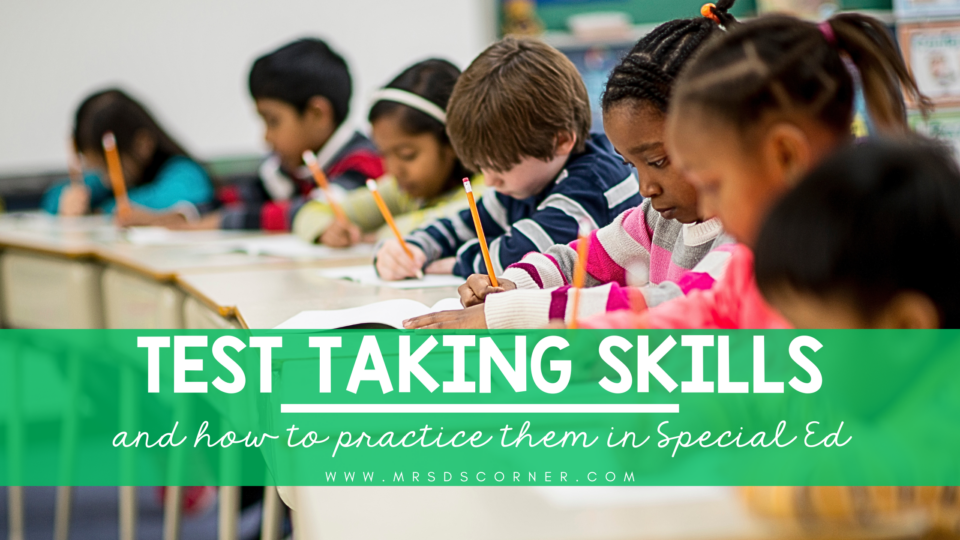When it comes to state assessments, having strong study and test-taking skills is crucial for success. Students need to be well-prepared not only in the subject matter but also in how to approach and tackle the test itself.


Here are a few essential test-taking skills that students should practice.
Test Taking Skills to Practice
Time Management
Time management is critical during tests, as students need to allocate their time wisely across all sections or questions. To practice this skill, students can use practice tests under timed conditions to simulate the actual test situation.
Reading Comprehension
Being able to understand and analyze written passages is essential for many state assessments. Students can improve their reading comprehension skills by practicing with sample passages and answering related questions.
Critical Thinking
State assessments often require critical thinking skills to analyze information and solve problems. Students can practice this skill by working on challenging problems or puzzles that require logical reasoning.
Test-Taking Strategies
Knowing effective test-taking strategies can significantly improve a student’s performance. Techniques such as the process of elimination, guessing strategies and managing anxiety can be practiced through mock tests.
Reviewing Previous Tests
Many states release previous years’ state assessments that teachers can print and use for practice with their students. Reviewing these tests can help students familiarize themselves with the format of the exam and the types of questions asked.
Managing Testing Anxiety
One effective way to assist students in managing testing anxiety is by encouraging them to practice relaxation techniques before and during exams. Deep breathing exercises, such as inhaling slowly through the nose and exhaling through the mouth, can help calm nerves and enhance focus.
Another helpful technique is visualization, where students imagine themselves successfully completing the test and achieving their desired outcomes. Encouraging students to maintain a positive, growth mindset can also be very helpful. Teaching them how to stay organized with their study materials and get sufficient rest can also contribute to reducing test anxiety. By incorporating these simple strategies into their routine, students can better manage their nerves and perform more confidently during the day of the state exams.
Tips for Helping Special Education Students Practice for State Testing
Supporting special education students in practicing for state testing requires a tailored approach to address their unique needs and challenges.
Here are some tips to help special education students prepare effectively.
Individualized Learning Plans
Develop individualized learning plans for each special education student to cater to their specific learning styles, strengths, and weaknesses. Tailoring study materials and practice tests to accommodate their needs can enhance their preparation.
Provide Additional Support
Offer additional support through one-on-one tutoring, extra practice sessions, or access to specialized resources that can help special education students grasp the concepts and skills required for state testing. You might even want to take a few extra class periods to review the test and give students time to practice.
Break Down Tasks
Break down complex tasks into smaller, manageable steps to help special education students understand and work through the material gradually. Providing clear instructions and guidance can alleviate anxiety and improve their confidence.
Utilize Visual Aids
Utilize visual aids, graphic organizers, and other visual learning tools to help special education students better comprehend information and retain key concepts. Visual aids can enhance their understanding and memory retention.
Practice Accommodations
Ensure that special education students receive any necessary accommodations during practice sessions, such as extended time, modified assignments, or assistive technology. Practicing with accommodations can help them feel more comfortable and prepared for the actual test.
Encourage Self-Advocacy
Empower special education students to advocate for themselves by teaching them how to communicate their needs and preferences during testing. Encouraging self-advocacy can boost their confidence and help them navigate challenges effectively.
By implementing these tips and providing tailored support, teachers can help special education students build essential test-taking skills and feel more prepared for state assessments. Collaboration between teachers, parents, and support staff is crucial in creating a supportive environment that fosters success for all students.
Encouraging students to regularly practice these skills can lead to improved performance and better outcomes in their academic journey.

